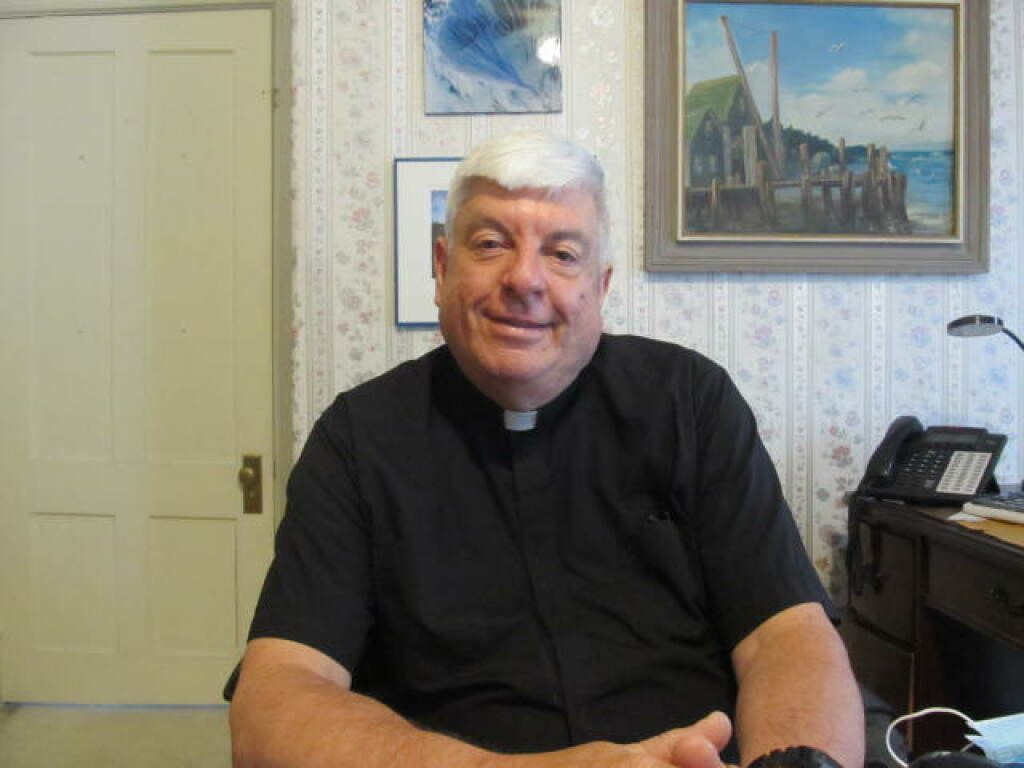 In
the World, but not of
the World
In
the World, but not of
the World
There’s a fable about a scrawny tiger cub that was abandoned by it mother shortly after birth, and was raised by a friendly herd of goats. All day, every day, the cub played with the goat kids, drank the nanny’s milk, and slept in the goat’s cave.
In time the cub came to think of itself as one of the goats. It would try as hard as it could to bleat like a goat, to cultivate a taste for grass and twigs, and to leap in the air like any normal goat. But, somehow, the tiger cub could never quite get the hang of it all.
One day, a huge Bengal tiger bounded out from the trees into the clearing where the cub and the goats were playing. It let out a tremendous roar. All the goats fled in terror for cover, but, for some strange reason, the little tiger felt drawn to the magnificent animal.
The big tiger led the little tiger down to a nearby stream and suggested that the cub take a look at its reflection in the water. The cub was amazed at the sight. Then the big tiger sat back on its haunches and let out a jungle-shaking roar. “There,” it taunted, “why don’t you try to roar like that?”
The little tiger cub mimicked the big tiger, sitting back and straining as hard as it could. Eventually, it felt a whisper deep within its throat. It grew stronger and stronger, until at last, the cub opened its mouth wide and let out a jungle-shaking roar of its own. From that day forward, so the fable goes, the tiger cub knew it could never again live like a goat.
In today’s Gospel we find a rather long prayer of Jesus, a prayer that he offers before his return to the Father. He notes that his disciples will live in the world. Nevertheless, and more importantly, he prays in such a way as to make their identity clear. They belong to God, they have received God’s revelation through Jesus, and they have kept God’s word. In other words, followers of Jesus are in the world, but at the deepest level, they are not of the world.
And this, really, is the great struggle for the people throughout the long history presented in the Bible. For example, when Moses is on the mountain receiving the Ten Commandments, the people down below have formed a golden calf and begin worshipping it. Later, when they enter the Promised lLnd, they live in an area that is surrounded by pagan cultures. Israel is situated in one of the great crossroads of the world. The struggle is: how do you keep your faith, keep the Commandments, and stay true to your relationship with God?
And the same struggle is ours! We live in a world of competing ideas and competing values. How do we stay true to our deepest identity and not allow ourselves to be defined by the surrounding culture? The Bible says that we are made in the image and likeness of God. That means that God has the greatest insight into who we are; God has the greatest right to tell us, and to remind us, who we are.
The world may tell us, for example, that we are failures if we don’t make a certain amount of money, own the right kind of stuff, have the right kind of job, or look a certain way. In our throw-away culture, many of the elderly can be cast aside because they are no longer working or contributing as they once were. Many younger people agonize because they feel they don’t fit in. I could go on, but I think you get the idea.
God, however, tells us that we are a unique creation, that we are God’s beloved children. We have an innate dignity as human beings. None of us is a second-class person in God’s eyes.
But, unfortunately, we can sometimes forget who we are, and whose we are. It’s like being a tiger, but trying to live like a goat! I invite you to bring this to reflection and prayer this week. Who are you trying to be? Have you forgotten your deepest identity as a Christian and a child of God? Do you ever feel that you’re not good enough? It’s time to reclaim your identity.
You might also like
Father's Homilies




